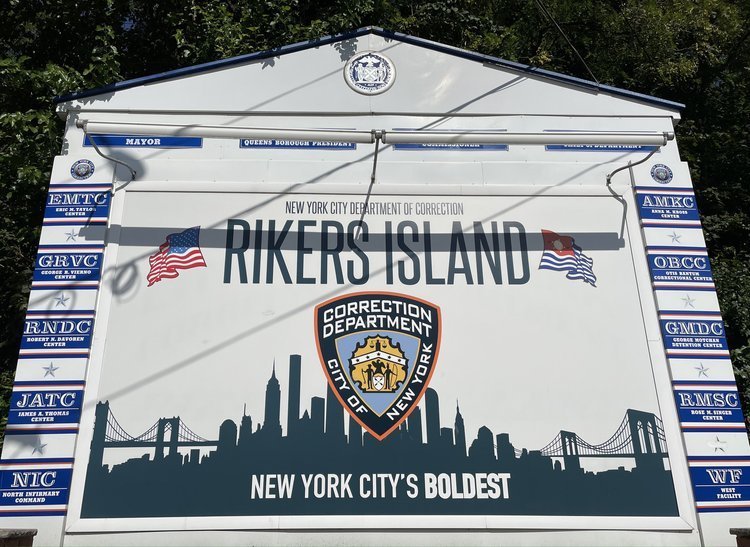Legal Aid calls on DOC to help detainees beat the heat
/The Legal Aid Society is urging the Department of Correction to better protect detainees from extreme heat. Eagle file photo by Jacob Kaye
By Rachel Vick
Amid the city’s heat wave, public defense attorneys are calling on the Department of Correction to better protect incarcerated individuals from the soaring temperatures.
WIth a heat advisory for the city extended to Sunday night and temperatures fluctuating between 95 and 100 degrees most of the week, the Legal Aid Society in a letter to the DOC emphasized the need to provide detainees with access to cooling methods from air conditioning to cold showers.
“As this heatwave begins, it’s imperative that the City improve its historic ineptitude in following its heat protocols and protect incarcerated New Yorkers from heat-related illnesses,” said Mary Lynne Werlwas, the director of the Prisoners’ Rights Project at The Legal Aid Society. “People in custody don’t have access to cooling centers, and in past years, we’ve heard horror stories from clients who were deprived of basic means to stay safe during hot weather.”
On July 21, there were approximately 1,100 detainees identified as heat-sensitive in custody and a total of 122 refusals to be moved to a housing unit with AC, according to DOC.
At a Board of Correction hearing July 12, the agency noted that 57 incarcerated people deemed “heat-sensitive” due to medical conditions were not housed in air-conditioned housing for various, unspecified reasons.
Nine other heat-sensitive individuals were allegedly denied air conditioning because of “security overrides,” which DOC said are done with approval by medical staff. Additionally, 113 incarcerated people refused to be moved to a unit with air conditioning.
The DOC shifted to their summer procedure and switching the temperature monitoring period to the hottest part of the afternoon between 1 p.m. and 4 p.m., the agency said. Temperatures in air-conditioned areas that rise above 80 degrees are reported to warden and commissioners “so immediate actions can be taken” to support heat sensitive individuals.
Refusal of heat sensitive status must be done in the presence of a medical provider, who explains the risks, the DOC said.
There aren’t enough air-conditioned units to house all incarcerated people on the island.
Unused beds in the air conditioned Rose M. Singer Center, a building on Rikers for incarcerated women, cannot currently be used for housing male detainees because it would violate proximity rules to maintain separation from the women detained in the facility, Commissioner Louis Molina said during the meeting.
“I urge the department, before the island closes, to reconsider making sure that everybody can have an air conditioned space during the summer,” BOC member Dr. Robert Cohen.
Molina told Cohen that he agreed “in principle.”
“I wish when they built these facilities they would have taken air conditioning into account, but as you know we have significantly aging infrastructure that was not kept up with… and that's why we find ourselves in this situation,” he said.
The Legal Aid Society requested the city provide free access to cool showers and ice where air conditioning is unavailable, and to override in-cell confinement “because being enclosed in one’s cell for long periods of time creates an extraordinary heat risk.”
They also demanded the DOC confirm that all heat sensitive individuals are offered air conditioning and that they provide evidence of any refusals.
Ice is delivered to housing units regularly during the hottest hours of the day, and every 2 hours to individuals in restrictive housing that does not have air-conditioning, according to the DOC 2022 heat plan. Ice deliveries must be noted in logbooks.
Detainees from at least three facilities have filed complaints during the heatwave, the Daily Newsreported.
“We take the health and safety of everyone who lives and works in our facilities very seriously, and we have no reports of heat related emergencies at this time,” a DOC spokesperson told the Eagle. “As we do every year, we have implemented a heat plan that carefully considers those deemed most at risk for heat-related concerns, and we are monitoring the situation closely. “




